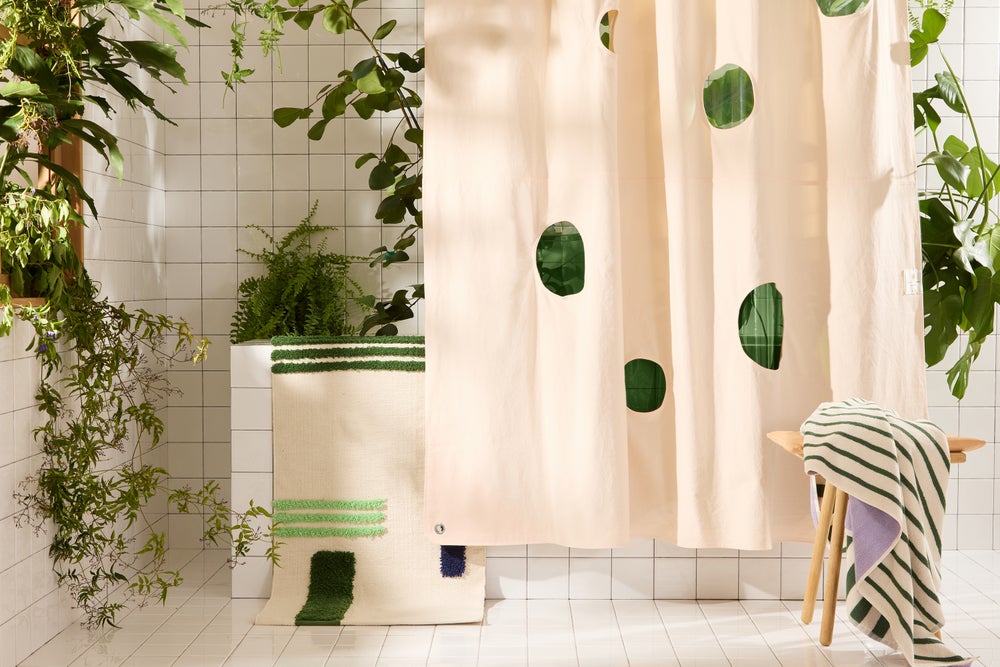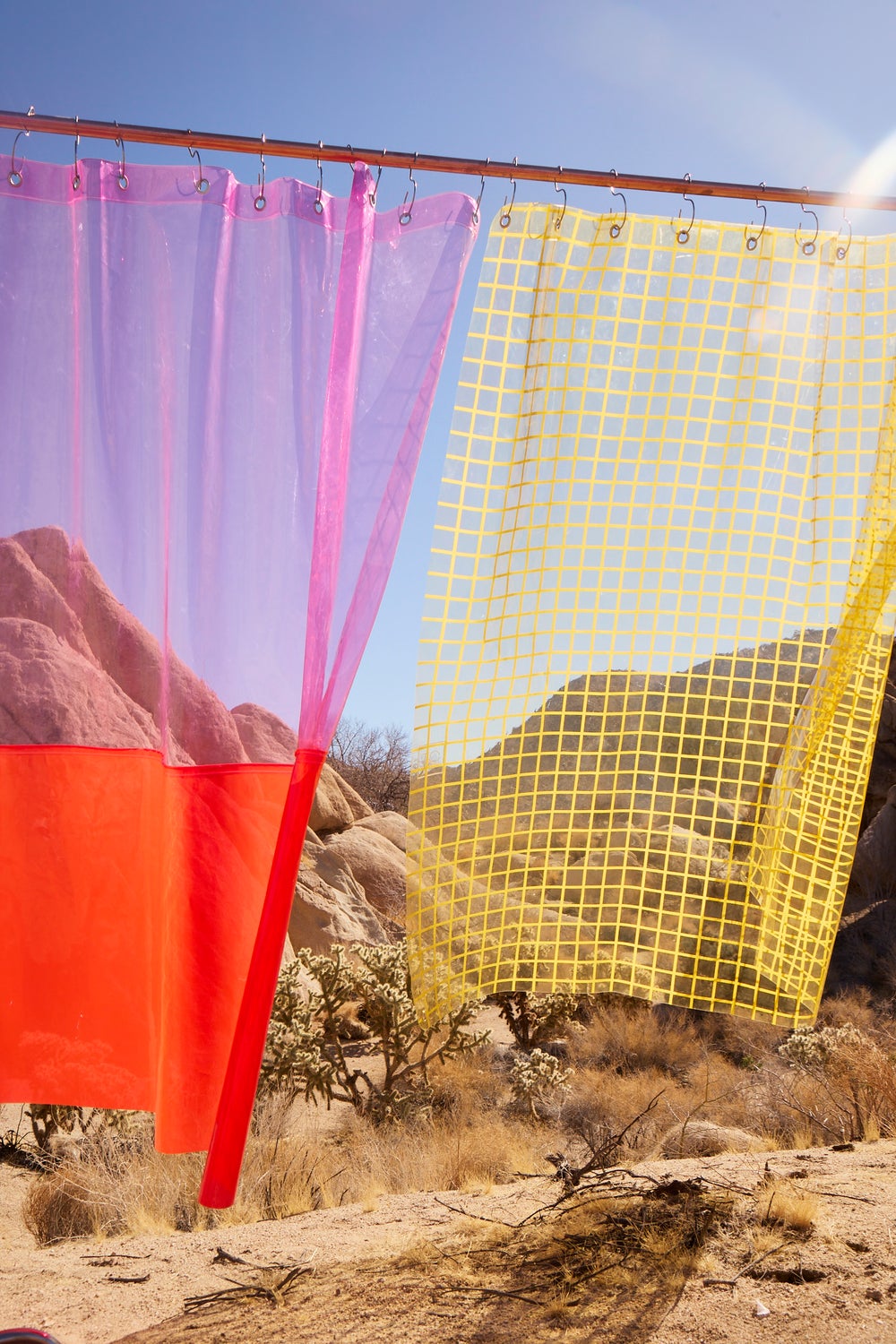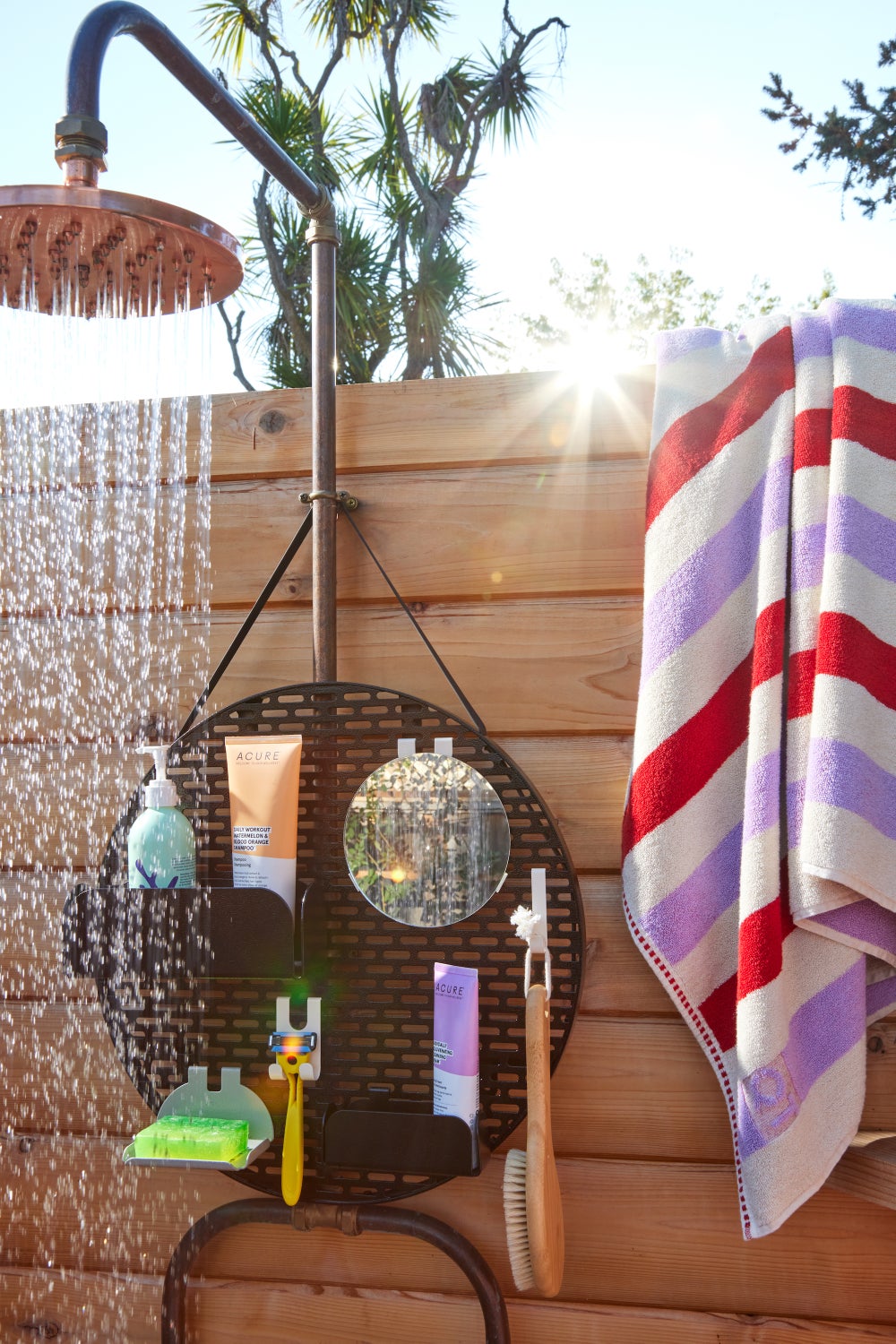This Couple Started a Side Hustle to Improve a 'Terribly Made' Bathroom Essential. Now the Business Earns More Than $3 Million a Year.

For Lisa Schulner-Fine and Michael Fine, the journey to business ownership began more than a decade ago in New York — when their newborn son wouldn't fall asleep.
"I would be in his room in the dark in the middle of the night, holding him, and I would start daydreaming," Lisa, co-founder with her husband Michael of lifestyle brand Quiet Town, tells Entrepreneur. "For some reason, my mind would go to shower curtains."

Image Credit: Courtesy of Quiet Town. Lisa Schulner-Fine and Michael Fine.
Lisa had been frustrated with the lack of shower curtain options on the market for a while. She and Michael both had an eye for design — she worked as a director of styling at Madewell and he as a freelance fashion photographer — and the couple struggled to find aesthetically pleasing bathroom accessories on retail shelves. To make matters worse, most of the items available were far from sustainable.
"We'd be at Bed Bath & Beyond with a big shopping cart, picking out terribly made plastic stuff that didn't feel like us at all," Lisa recalls.
To Lisa, bath accessories seemed like the "biggest underdog category" that she could approach from a creative and sustainable perspective. She continued to meditate on shower curtain designs on nights and weekends, balancing the side hustle with her full-time career and raising a young family.
In the beginning, Michael admits that he didn't quite understand the impetus for his wife's passion project. "[I felt] like, This is crazy," he says. "Nobody cares about shower curtains. Why would you ever want to start a business like this?" However, he also knew that Lisa was "very creative" and "visionary" — so it made sense that she was ready to bring a fresh perspective to the industry.
"So I said, 'Okay, I can help you get this off the ground,'" Michael recalls. "We had no idea where it was going. It was really like a side hustle."

Image Credit: Courtesy of Quiet Town
"It was all about mood for us, less about being specific in what we do."
Lisa decided to make the shower curtains out of canvas material. The couple put a lot of thought into every step of the process, from dyeing to finishing. The goal was to create a product that became more beautiful with age, "like a pair of jeans," Lisa explains.
For the side hustle's first-ever shoot, Michael and his photography assistant took samples of canvas shower curtains Lisa had made onto the beach. They set the curtains up with rope, pulled them taut and photographed them in nice light — then put a splash page up and used the image for the brand's inaugural Instagram post to let people know something was coming soon.
"We never did anything traditional that way," Michael says. "It was never like, shoot in a bathroom in front of a tub. It was like, go to the beach, or find a really beautiful red wall, and shoot it there. It was all about mood for us, less about being specific in what we do."

Image Credit: Courtesy of Quiet Town
Because back in 2016 and now, the couple sees the business as extending beyond bathroom accessories — and into a lifestyle brand. Michael and Lisa wanted to create functional products that people really needed, but they strived to do it in a "beautiful, aspirational way." Some of the first products were named after their favorite quiet towns, like "Ojai" and "Mendocino," which also inspired the company's "Quiet Town" moniker.
In those early side hustle days, Lisa found herself picking up and saving "every scrap on the floor" during production, not wanting to waste the "beautiful byproduct." So, before long, another opportunity emerged: to start a project, dubbed Re:Canvas, that could preserve those remnants and transform them into "something new and cool" through strategic partnerships.
The couple partnered with the Brooklyn-based Textile Art Center for the first Re:Canvas project, upcycling the material into Portuguese-inspired rag rugs. Quiet Town went on to collaborate on hand-quilted pillowcases with the artist Rebeca Raney, placemats and napkins with West Elm, a colorblocked jacket and shorts set with the designer Alex Mill and more.
" It's really hard, very expensive, and it takes a long time."
Committed to building a sustainable brand from the start, the co-founders admit that they initially hesitated to produce liners for their shower curtains. Lisa and Micahel didn't want to introduce more plastic into the world, but after discussing the issue with friends, they realized they had to figure out how to put a sustainable spin on the product — Quiet Town did begin as a shower curtain business, after all.
The co-founders' solution, which they don't even refer to as a "liner," was the "sun shower curtain." Made from non-toxic EVA vinyl plastic that is chlorine-, PVC- and BPA-free, sun shower curtains can be used as a shower curtain liner or as a standalone curtain. They also resolved to form a post-consumer recycling plan for them — a challenging endeavor for a small business.
" It's really hard, very expensive, and it takes a long time," Lisa says. Establishing a recycling project was the goal from the start, and over the past several years, Quiet Town has been "charting a map towards circularity" for its sun shower curtains, working with an international recycling community called Precious Plastics, which provides resources to help people tackle the plastic waste problem. The company's circular sun shower product will launch this summer.
"The sun shower category started to explode because it was affordable and aspirational."
Like many businesses with a focus on products for the home, Quiet Town saw a spike in demand during the pandemic.
"If they were lucky enough to still have a job and could afford to spend money, people didn't know what to spend their money on other than groceries and toilet paper," Michael says. "It was like, Oh, wait a second, I'm spending so much time in my bathroom. The sun shower category started to explode because it was affordable and aspirational."
Quiet Town graduated from side hustle to full-time business in 2020. In April of that year, revenue started growing month over month. Quiet Town made about $300,000 during its first year on that trajectory; now, the brand generates more than $3 million a year.

Image Credit: Courtesy of Quiet Town
Additionally, like many people during the pandemic, the couple began to rethink their location. Michael and Lisa had lived in San Francisco in 2001 for about a year; they loved the West Coast and had always felt as though they had "unfinished business" there. So they decided to make the move, give it two years and dedicate themselves to Quiet Town.
"[The Bay Area] gives us access to all the things that we wanted," Michael says, "like mountains, beach, city, a really great place to raise kids. So it was always there in the back of our minds, to the point of using the world as our bathroom on photo shoots."
"[The West Coast] always informed our design approach," Lisa adds. "Now it actually kind of feels like we're home."
" No matter how small or big you grow [the business] to, you have to believe in it so passionately."
Now, nearly a decade into running their business, the co-founders have learned a lot about what it takes to navigate the ups and downs of entrepreneurship — and how valuable having a partner through it all is.
"The best piece of advice I think I can give to somebody is to try to start a business with a partner," Michael says. "It's so hard to do on your own. And make sure that partner has totally different skills than you do. If you are creative, find someone who has a mind for finance, business or operations."
Michael also suggests maintaining a healthy work-life balance, noting that he finds some of the best inspiration for the business when he's on a hike, listening to music.
Lisa stresses the importance of being "obsessed" with the business that you want to start — and believing in it so fully that you're willing to fight for it from day one.
"No matter how small or big you grow [the business] to, you have to believe in it so passionately, 1000%, because it really does take over your life in so many ways," Lisa says. "Unless that thing is something you really, really believe in, do not give it that much power over your life."
entrepreneur





